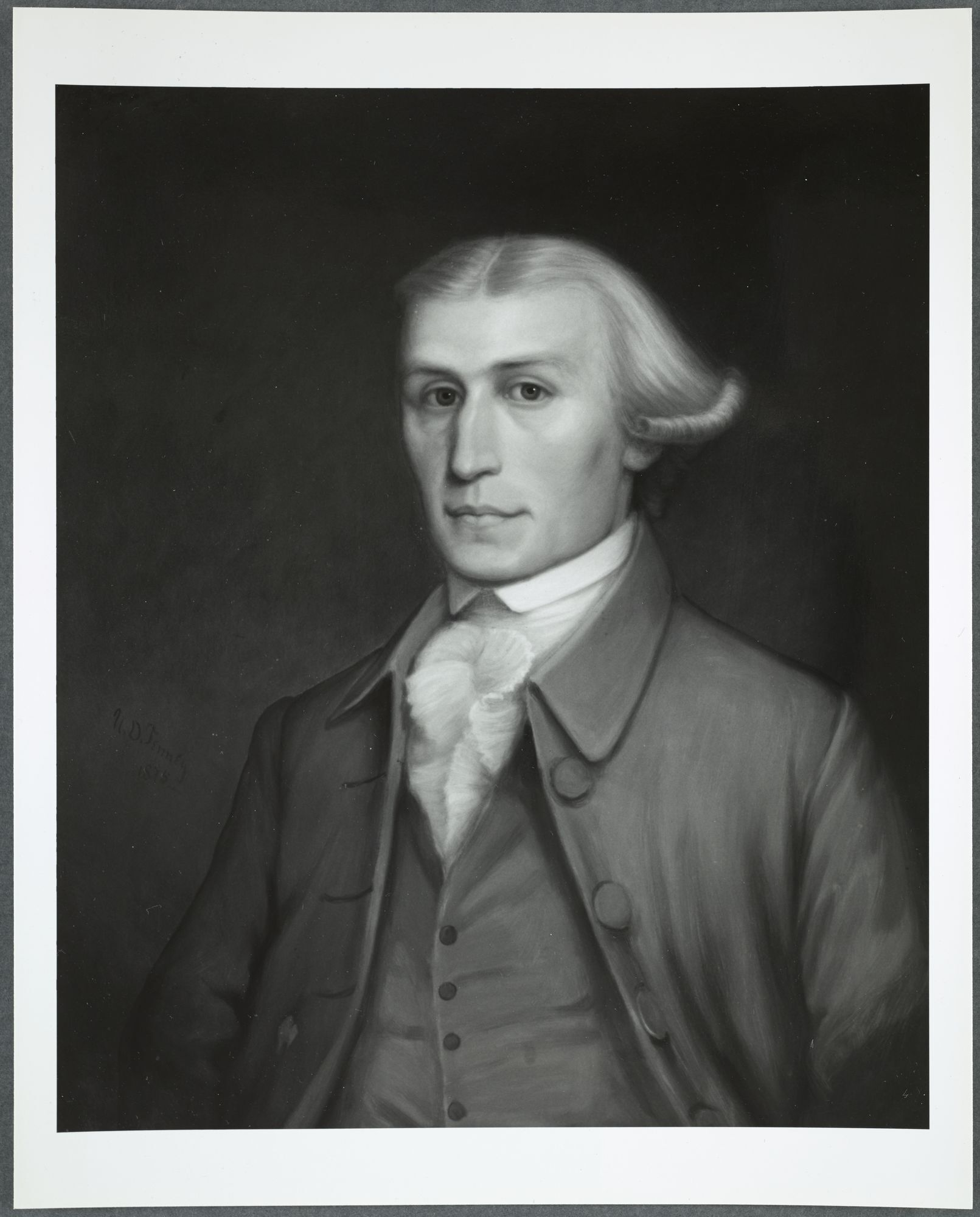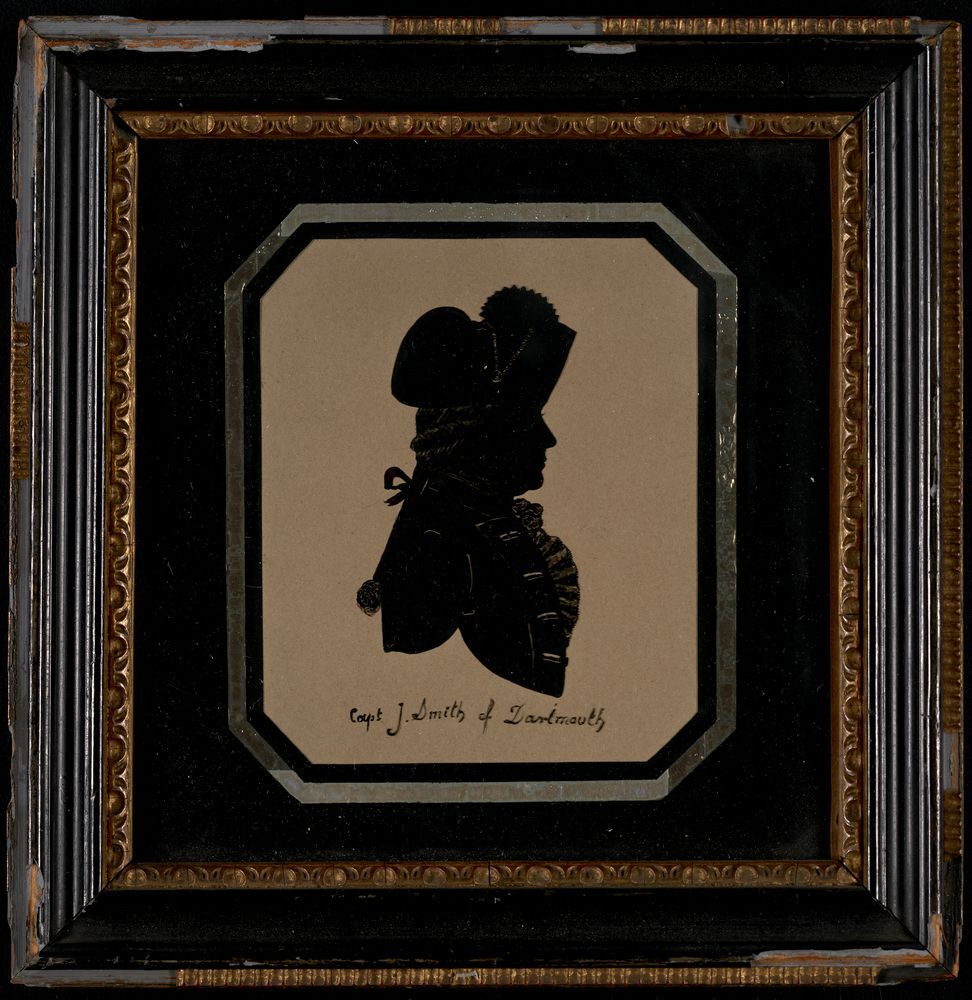Dissent and Discord
When John Wheelock took over the presidency of the College in 1779, he inherited a docile Board that had allowed his father free rein. By the time John had been in office twenty-five years, the Board had seen some changes and the new members felt that John was too autocratic in his approach. In 1811 a dispute related to Roswell Shurtliffe, Professor of Theology, preaching in the local church, blew up into a quarrel between the Board and John. This resulted in the Board curtailing some of the president’s duties. In 1814 John anonymously published a pamphlet in which he accused the Trustees of overstepping their power. Even though the pamphlet was anonymous, its authorship was clear from the content. The Trustees retaliated with their own pamphlet and eventually removed John from the presidency. Federalist though he was, John appealed to the Republican governor for help against the College’s Trustees. Governor William Plumer passed an act that increased state control of the College and changed its name to Dartmouth University, but the College Trustees refused to back down.
Previous: About -- Next: The New Hampshire Case
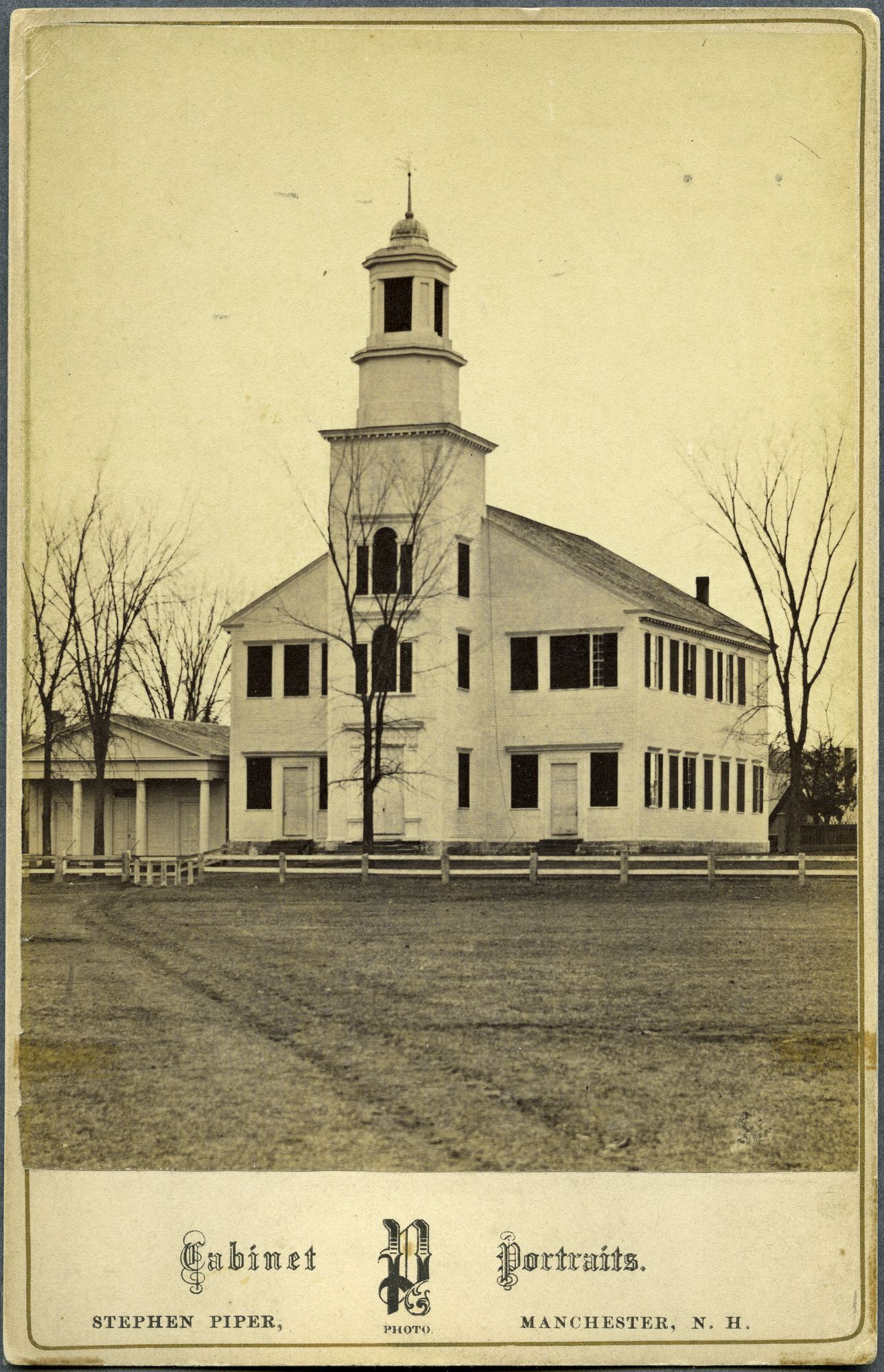
The Old White Church
It was a dispute over who would preside as minister of the Old White Church that precipitated the quarrel between John Wheelock and the Board of Trustees. The problems began in 1804 when a majority of the local church members wanted to replace John Smith, a staunch supporter of John Wheelock, with the new Professor of Theology, Roswell Shurtleff, as their pastor. The Board tried to appease both sides, but in 1811, Wheelock charged the Board with misappropriating funds by allowing Professor Shurtleff to spend time preaching at the local church.
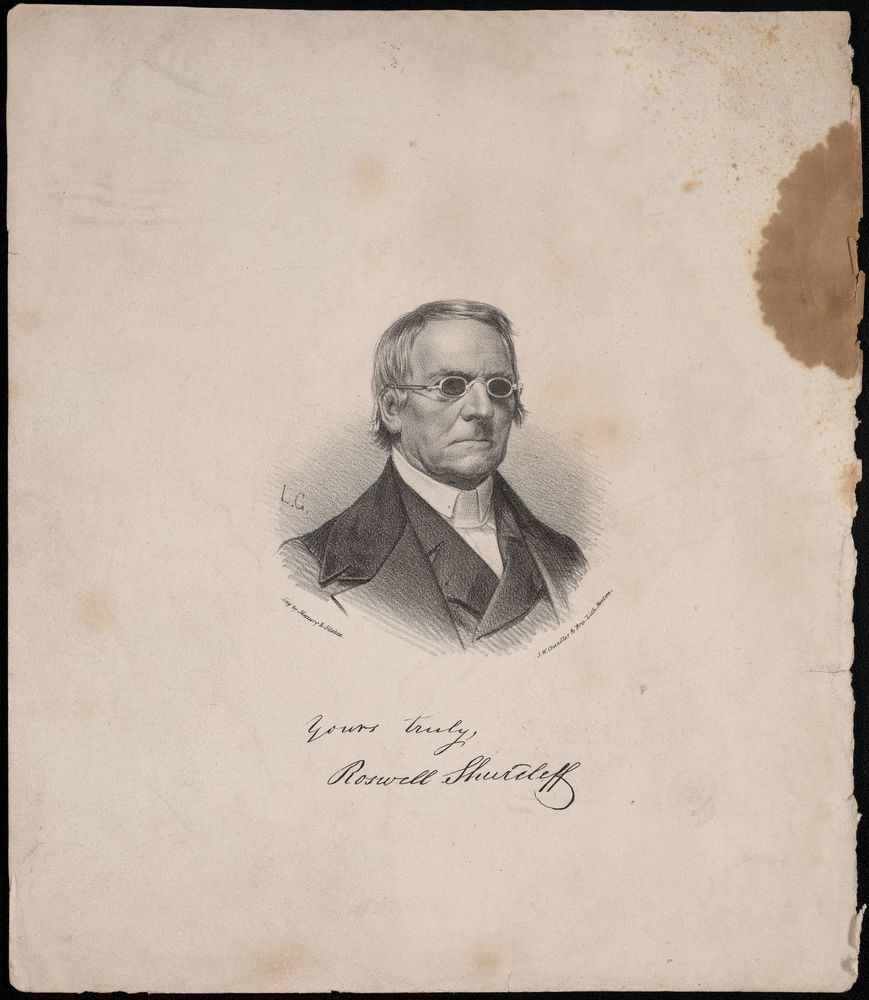
Portrait of Roswell Shurtleff
Professor Shurtleff’s “religious fervor” was what initially caused a split in the congregation, many of whom preferred him over the stuffier Professor Smith. This in turn led John Wheelock to advocate against him, ending in a rift with the Board.
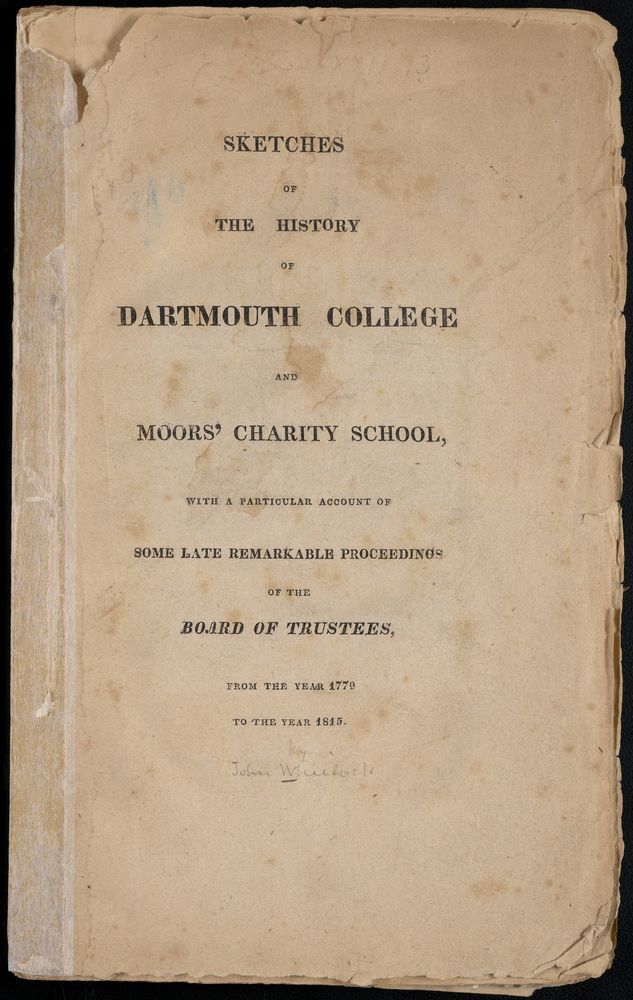
Sketches of the History of Dartmouth College
A vindication of the official conduct of the trustees of Dartmouth College: in answer to "Sketches of the history of Dartmouth College," and "A candid analytical review of the sketches,"
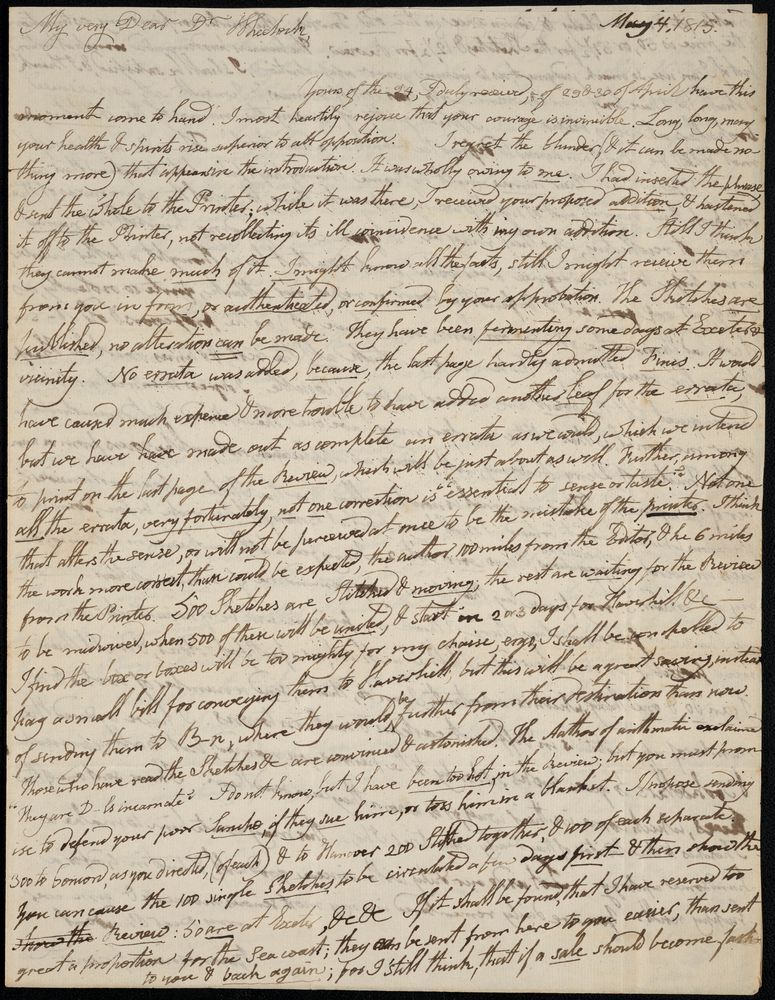
Elijah Parish to John Wheelock
Parish writes to Wheelock saying that the Sketches are published, but he is worried that they are “too hot.” This is one of several letters that prove that the Sketches were written by Wheelock in consultation with Parish, a man who Wheelock put forward for a professorship, but the Trustees declined to hire.
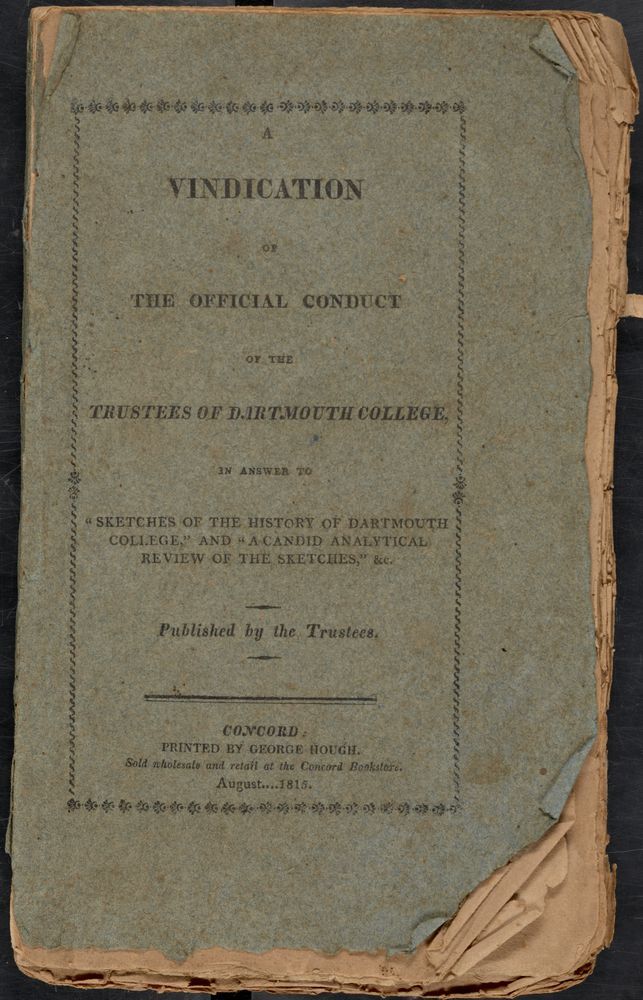
A vindication of the official conduct of the trustees of Dartmouth College: in answer to "Sketches of the history of Dartmouth College," and "A candid analytical review of the sketches,"
The Trustees’ answer to John Wheelock’s accusations made in the Sketches. Pamphlet wars like this were a common occurrence in the 18th and 19th centuries. They were used similarly to how Twitter is used today, but with no word limit! In fact, these two pamphlets spawned a number of other responses in pamphlet form from supporters of both parties.
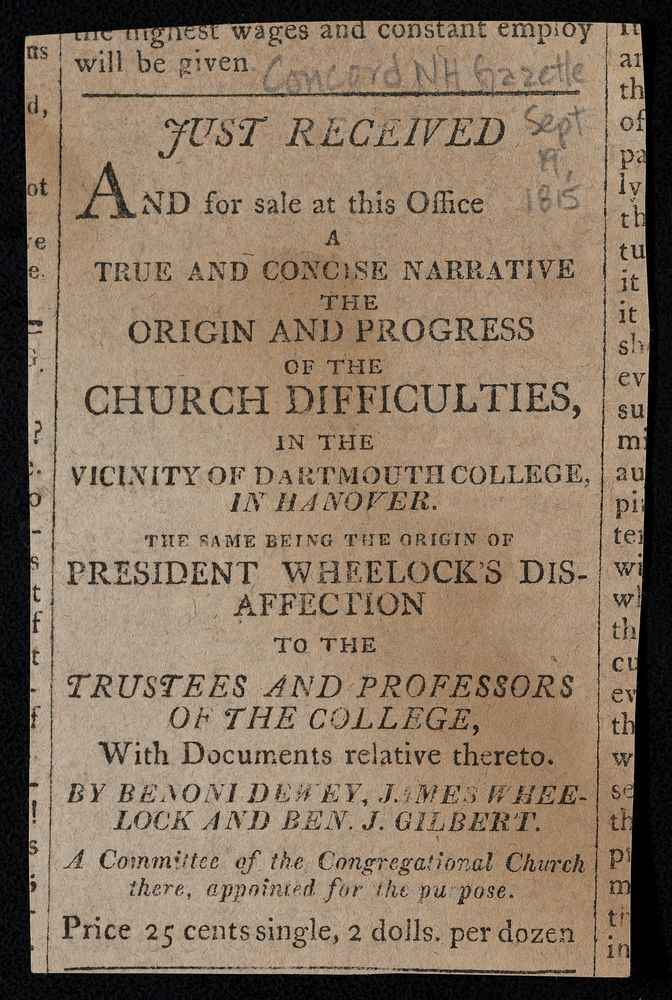
Three newspaper clippings on the sale of the pamphlets
News clippings from the Concord Gazette, the New Hampshire Sentinel and the Dartmouth Oracle showing how widely publicized the rift between the Board and the president became.
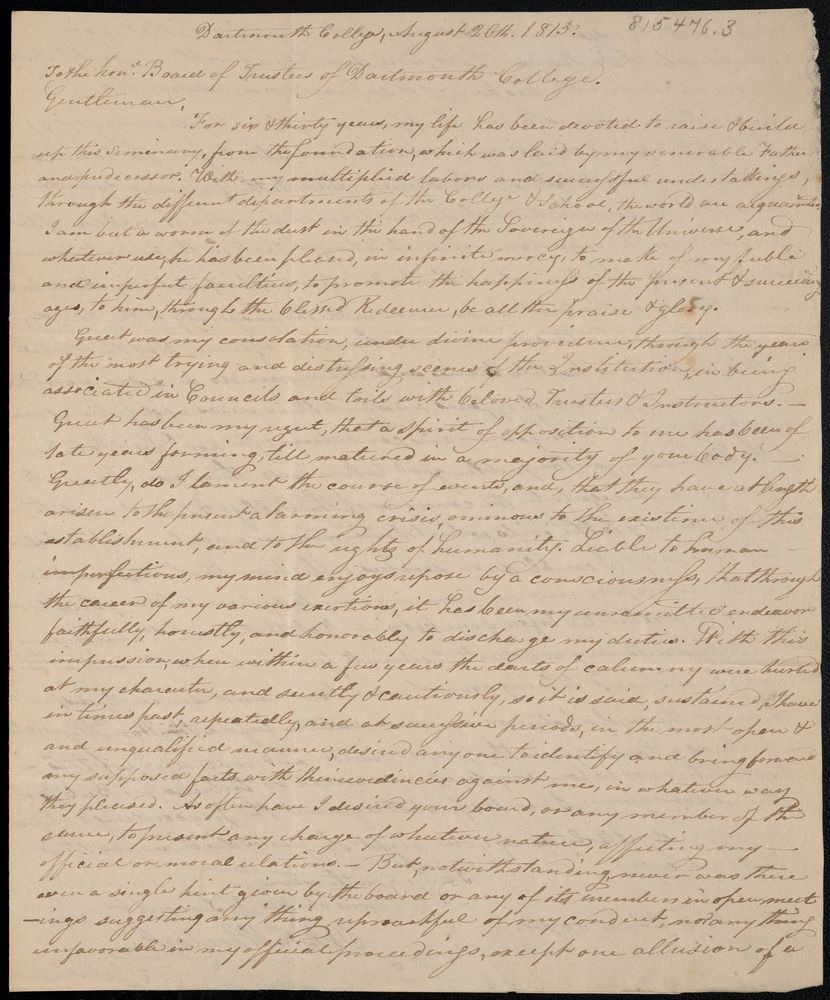
John Wheelock to Board of Trustees
A Second draft of the letter John wrote to the Trustees claiming that they could not put him on trial or remove him from office.

“An Act to Amend the Charter and Enlarge and Improve the Corporation of Dartmouth College”
It was a dispute over who would preside as minister of the Old White Church that precipitated the quarrel between John Wheelock and the Board of Trustees. The problems began in 1804 when a majority of the local church members wanted to replace John Smith, a staunch supporter of John Wheelock, with the new Professor of Theology, Roswell Shurtleff, as their pastor. The Board tried to appease both sides, but in 1811, Wheelock charged the Board with misappropriating funds by allowing Professor Shurtleff to spend time preaching at the local church.
